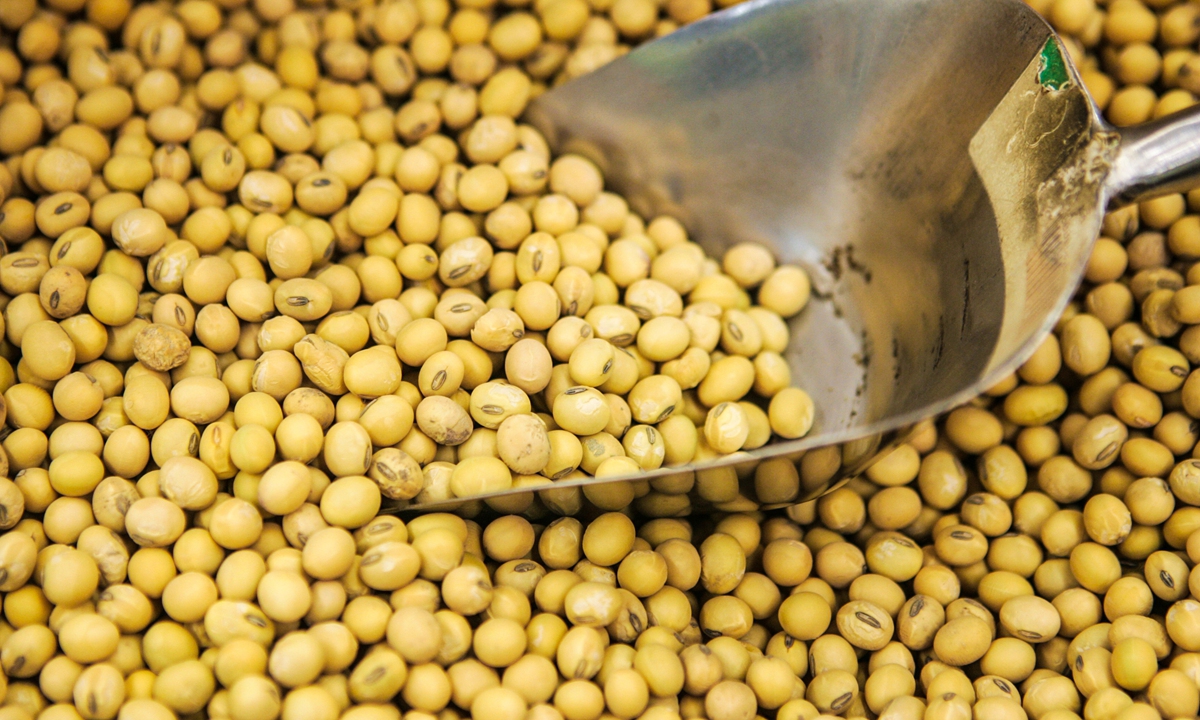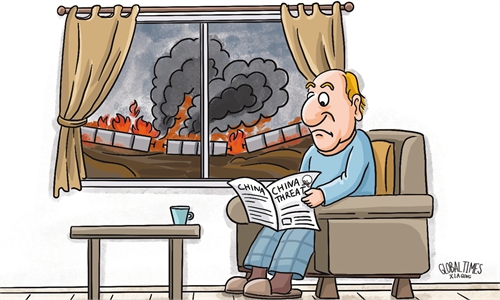Ohio chemical leak sparks soybean concerns; industry confident in dealing with impact

Soybean Photo: VCG
A major US farm production base in the state of Ohio, a big source of soybeans for China, has been in the spotlight since a serious chemical leak took place in early February, sparking food safety concerns among Chinese consumers.
The actual impact is still unclear, partially due to the lack of transparency in the US over handling of the case, but Chinese industry sources said that they can deal with any safety issues or supply disruptions.
A train carrying toxic chemicals derailed in East Palestine, Ohio on February 3, causing the release of vinyl chloride into the air, which later turned into a dark plume of smoke after crews ignited it in attempt to get rid of the flammable chemicals, according to media reports.
Vinyl chloride is associated with increased risk of certain cancers, and officials at the time warned burning it would release two concerning gases — hydrogen chloride and phosgene - the latter of which was used as a weapon in World War I, the VOA reported.
Residents in the area were immediately evacuated and testing took place. Local media outlets have reported sick children and animals dying in the surrounding region.
Experts have expressed concerns over the toxic chemical dioxins, which are often produced during incomplete combustion of vinyl chloride. The former are persistent and do not dissipate in the air.
The subject led to about 5,000 discussions and more than 90 million viewers on China's Sina Weibo, the Twitter-like social media platform, as of press time.
Many people in China have criticized the lack of transparency and irresponsibility of the US government in handling the case, and many also expressed food safety concerns. The US is a major source of food imports for China, and Ohio is a big producer of soybeans and corn, two major traded goods to China.
A Beijing-based consumer surnamed Li told the Global Times that she is very worried about the potential food safety issues. "Even though some analysts have said it would be safe, some toxic chemicals could still remain in the soil and water in the area," Li said.
The US Soybean Export Council and Ohio Soybean Association did not respond to the Global Times as of press time.
Ohio's main agricultural export is soybeans, and it is the seventh-largest exporting state of the corresponding agricultural products in the US, accounting for about 6 percent of the country's exports, Hua Chuang Securities analysts said, according to media reports.
China is one of the largest export destinations for soybeans from Ohio, with 30 percent of the soybeans in the region being sold to China.
US soybeans are mainly used to produce edible oil and make protein feed, the latter being the main source of feed for pigs in China.
Although soybean crops in Ohio have already been harvested at this time of year, potential risks remain given the special characteristics of dioxins, experts said.
Wang Gangyi, a professor at Northeast Agricultural University, told the Global Times on Wednesday that dioxins can permeate into the surrounding environment. "If it rains, it will inevitably pollute the groundwater, which means a potential expansion of the impact," Wang said.
However, Chinese customs officials and experts told the Global Times that China can control the situation since, unlike the US, the Chinese government takes public health and safety as the top priority and has the ability and readiness to handle such incidents.
A port customs employee in a city in East China told the Global Times that customs has the ability to inspect and detect toxic chemicals quickly, including dioxins at port.
"We have our own labs to conduct immediate tests," the person said, and third-party labs can also help.
Another potential impact is soybean supplies, but experts said that there's no need for concern since the US is not the only source.
Besides of the US, China also imports soybeans from countries such as Brazil and Argentina, with Brazil alone taking more than 60 percent of soybean imports.
To ensure stable supplies, China has expanded domestic production while reducing imports. In 2022, domestic soybean output reached 20.28 million tons, a year-on-year increase of 23.7 percent, the first time China's soybean production exceeded 20 million tons.
While there is no need to worry about supply issues, experts said that the US accident served as a reminder that it is always important to diversify supplies of such agricultural goods instead of heavily depending on any singular country.
As the Chinese government attaches importance to food security, the self-sufficiency rate of such agricultural goods will increase.

